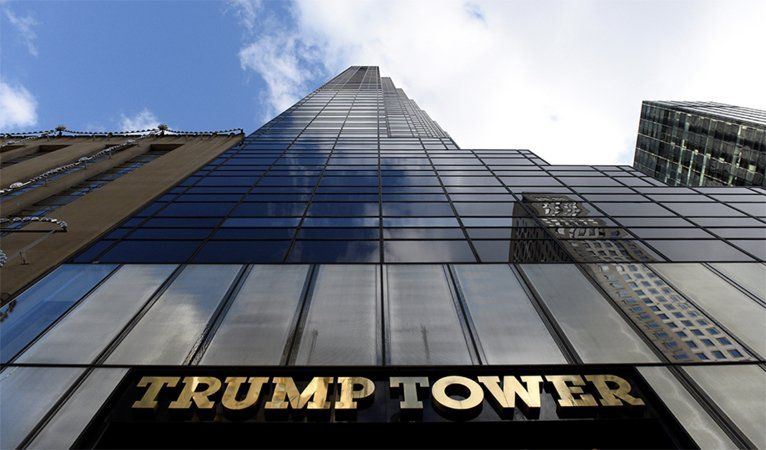"The optics are terrible" is one of the nicer things an expert on government ethics had to say over a report that Donald Trump's real estate business just took on the sale of a $12 million New York condo owned by a pharmaceutical giant.
According to a report from Russ Chome of Mother Jones, the condo on the 39th floor of the Trump International Hotel and Tower at Columbus Circle has been on the market on and off for years with high-profile firms like Sotheby’s, with no takers.
Last month the owner, Swiss pharmaceutical giant Roche, signed on with Trump International Realty, where the president holds a 55 percent stake and his children hold the balance.
As Mother Jones' Chome is reporting, a successful sale at the current price would net Trump's firm approximately $323,000 in commission, and that is not the only “exclusive listing” the firm is currently boasting about.
According to the report, the firm currently has 10 properties listed with a combined price of $42.6 million.
Among those is a second condo located at Trump Parc that is listed for $6.6 million and is owned by a mysterious British Virgin Islands-based company that has refused to divulge who the company's principals are.
According to Robert Maguire, research director for Citizens for Responsibility and Ethics (CREW) the real estate firm is yet another avenue for property owners to gain influence with the president.
“The optics are terrible, but there’s also all of the unanswerable questions which are raised by it, like did someone tell them that by enriching the president, they’d have a better chance of having their interests heard by the administration?” he explained. “Or is there just a general perception that if you do business with the president, if you enrich the president, you will get better treatment by the administration?”
Mother Jones' Chome added, Roche "potentially has a lot to lose from Trump’s tariffs—the standard tariff of 10 percent is supposed to rise to 31 percent on many of its products," adding, "In May, Trump signed an executive order that attempted to force pharmaceutical companies to tie their US drug prices to the prices they charge in other developed countries. Roche was one of the first—and loudest—companies to complain about the move."
You can read more here.
Leave a Comment
Related Post
